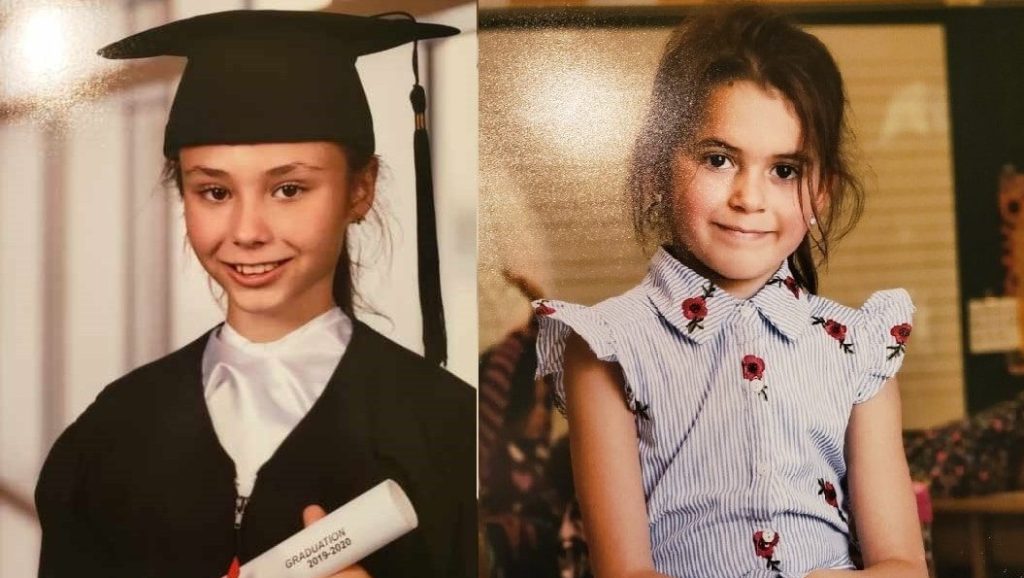Coroner report into deaths of Romy and Norah Carpentier: ‘Too little, too late’

Posted October 24, 2023 9:16 am.
Last Updated October 24, 2023 3:49 pm.
Quebec Deputy Chief Coroner Luc Malouin released his report Tuesday morning in connection with the deaths of Romy and Norah Carpentier. The 11 and six-year-old sisters were killed by their father, Martin, in July 2020.
In the report, Malouin says that the Sûreté du Québec (SQ) didn’t grasp the urgency of the situation quickly enough – leading to serious consequences. That the ground search for the girls can be summed up in four words: “too little, too late.”
The report lists 11 recommendations for the SQ, among them, to “modify how they handle runaways, disappearances, and kidnappings,” and to “always consider the disappearance of a child under the age of 13 as a worst-case scenario.” As well as to “provide for the presence of two investigators for any disappearance.”
According to the coroner, the SQ could have “issued a media alert” as early as the morning of July 9.
Martin Carpentier and his daughters disappeared after their vehicle crashed on the evening of July 8, 2020 – on a highway in St-Apollinaire, southwest of Quebec City. An Amber Alert went out the next afternoon.
The search itself was moved eight kilometres away from the initial crash site when witnesses contacted police about screams being heard in the middle of the night in a wooded area, but nothing was found. Then it was moved back.
The bodies of the sisters were discovered on July 11, less than two kilometres from the original site of the accident.
Last February, SQ investigators admitted that the operation to find the Carpentier sisters and their father Martin had suffered from communications failures.
A public inquiry wrapped up in May of this year and heard from numerous witnesses, including the children’s mother. The coroner analyzed over 700 documents and read more than 250 pages of briefs.
All 11 recommendations from the coroner to the SQ in the Carpentier case:
- Modify the “Runaway, Missing and Abduction” Management Policy ENQ, CRIM.-36 to provide for the presence of two investigators for any disappearance of a child under 13 years of age;
- Remind all officers, investigators and police officers of the importance of always consider the disappearance of a child under 13 as a worst-case scenario and act accordingly;
- Equip vehicles and police officers with the technology needed to share information gathered during a police operation;
- Train police officers in its emergency services, for both pool both Basin 1 and Basin 2, in accordance with national search and rescue and rescue standards, and to ensure the maintenance of skills and experience in accordance with national standard CSA Z1620-15;
- Establish simple, effective partnership and collaboration protocols with other police forces, wildlife protection officers and volunteers from the Association québécoise des bénévoles en recherche et sauvetage (AQBRS), and disseminate these protocols to all officers;
- Initiate a media alert promptly after a disappearance, especially those involving children under 13;
- Set up a unified command post as soon as a ground search operation begins;
- Assign a ground search technician to this command post, to act as liaison between searchers and investigators;
- Complete feedback at the end of each day;
- Better drafting of all operations logs, both for investigative work and for ground searches.
- Assign two ground search technicians when, after initial searches, additional personnel are added.
The coroner concluded that “Martin Carpentier died of asphyxiation” when he took his own life.
Both Romy and Norah “died of severe blunt head trauma” and he called both their deaths “homicide.”
SQ must take note, says Bonnardel
Asked about the report on the sidelines of another Quebec City event, Public Security Minister François Bonnardel said he expected the SQ to implement the coroner’s recommendations.
“We’re going to take this report into account to make sure we have the right teams in place, the units in place. We’re going to train more police officers at the École nationale de police,” he said.
Bonnardel reiterated that the SQ had already implemented new measures and would continue to do so in light of the report, notably to respond more quickly to events of this kind.
“I think the findings are clear,” he added. “Time, the few hours lost, sometimes we’re just talking about three hours, four hours, five hours, but five hours can make a difference.”
“When you lose five hours, it’s immense, you have to be more than proactive.”








